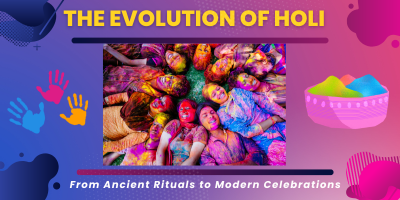
“Where the Mind Is Without Fear,
And the Head Is Held High…”
Empowerment of women, in various ways and spheres has become the talk of the nation. But how far we are being honest in our endeavor is a matter of concern.
How much do we respect the women population of our country? Ohh, the question should be framed as: Do we really respect the women population of our country? NO. We don’t. Why? Not many of us know an answer to this debatable question.
Before the status of ‘women empowerment’ is discussed particularly in India, it is pertinent to know the concept of ‘women empowerment’ and to be aware of the constitutional provisions safeguarding women’s rights.
According to Srilatha Batliwala:
“Women’s empowerment is the process, and the outcome of the process, by which women gain greater control over material and intellectual resources, and challenge the ideology of patriarchy and the gender-based discrimination against women in all the institutions and structures of society.”
Batliwala further adds that essential elements of Women’s Empowerment process are the following:
• Empowerment is a process.
• The process of empowerment is all-embracing, because it must address all structures of power.
• The process of women’s empowerment must begin in the mind, by changing women’s consciousness.
• Power and rights have to be demanded by the powerless and oppressed.
• The process of empowerment must be induced or stimulated by external forces.
• External change agents have an important role to play in the process of empowerment.
• Empowerment confers decision-making rights on each individual.
• Education is central to the process of empowerment.
• Empowerment education seeks to build a critical consciousness, analytical thinking, and the knowledge and skills to act for change.
• The process of empowerment must occur collectively.
• Empowerment processes must begin by creating a separate ‘time and space’ for women to collectively and critically re-examine their lives, develop a new consciousness, and organise and act for change.
• Empowerment is a spiral – not a cycle – which leads to greater and greater changes.
• The empowerment spiral transforms every person involved: the individual (including the change agent), the collective, and the environment.
• Empowerment is not merely a change of consciousness, but a visible manifestation of that change which the world around is forced to acknowledge.
• Empowerment means making informed choices within an expanding framework of information, knowledge and analysis of available options.
• The struggle to gain access and control of resources is integral to the empowerment process.
• An empowerment process is one which tackles both the condition and position of women.
• Women’s empowerment must become a political force if it is to transform society at large.
• Only mass movements and organisations of poor women (and men) can bring about the fulfillment of women’s ‘practical’ and ‘strategic’ needs, and change both the ‘condition’ and the ‘position’ of women.
• The process of empowerment should also generate new notions of power itself.
Women’s empowerment should thus lead to world where women – and the ‘new men’ – ensure that resources are utilised not just equitably, but sanely and safely; where war and violence will be eliminated, and our earth re-restored to a clean, green place for the coming generations.
The principle of gender equality is mentioned in clear words in the Indian Constitution. The Constitution not only grants equality to women, but also empowers the State to adopt measures of positive discrimination in favor of women of the country.
From the Fifth Five Year Plan (1974-78) onwards there has been a shift in the approach to women’s welfare development. From the past few years, the empowerment of women has been recognized as the central issue.
The National Commission for Women was set up by a Parliament Act in 1990 to safeguard the rights and legal entitlements of women and her safety. The 73rd and 74th Amendments (1993) to the Constitution of India have provided reservation seats in the local bodies of Panchayats and Municipalities for women.
India has also authenticated various international conventions and human rights instruments committing to secure equal rights for women.
There are a number of Non-Government Organisations and women’s movement that has now developed into a big tree and has spread its branches to work for the women’s welfare. However, there still exists a broad gap between the goals affirmed in the Constitution, legislation, policies, plans, programmes, and related mechanisms on the one hand and the situational reality of the status of women in India, on the other.
India still needs to wake up to do more about Women's Empowerment. Making Laws and Acts is okay but what about following them?
Therefore, waiting for a new dawn to arise for the Indian Women, I would like to quote Rabindranath Tagore from his book ‘Gitanjali’:
“Where the mind is led forward by thee into ever widening thought and action
Into that heaven of freedom, my Father, let my country awake.”